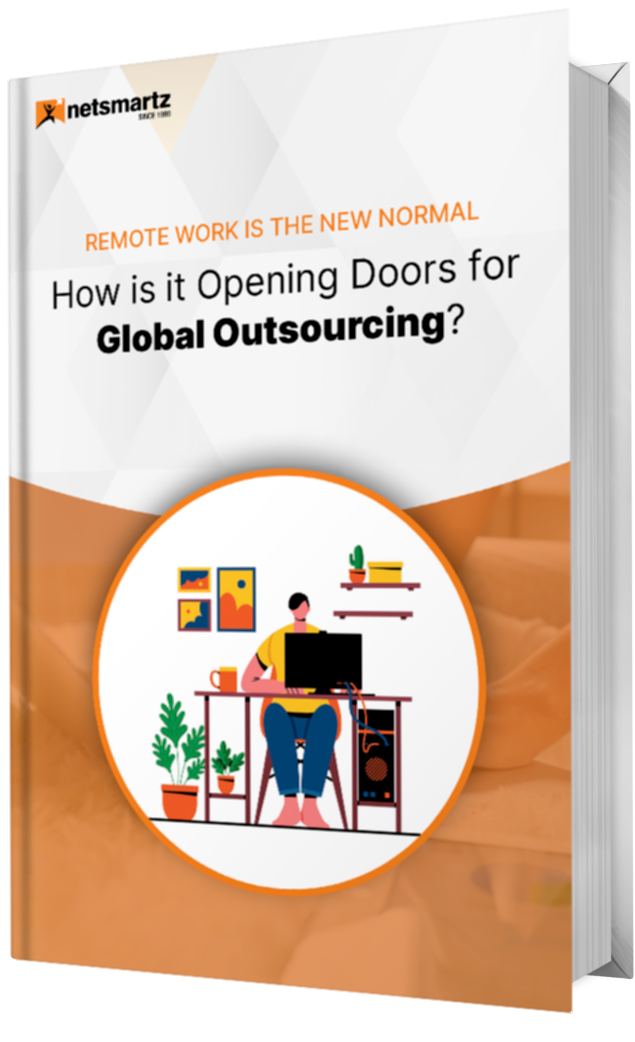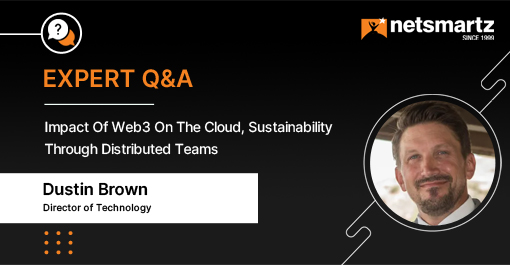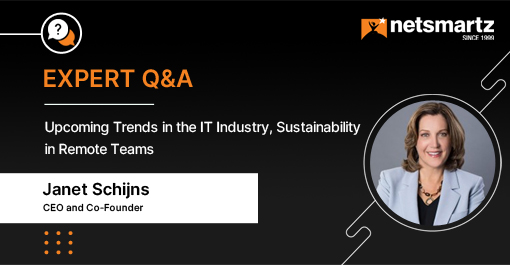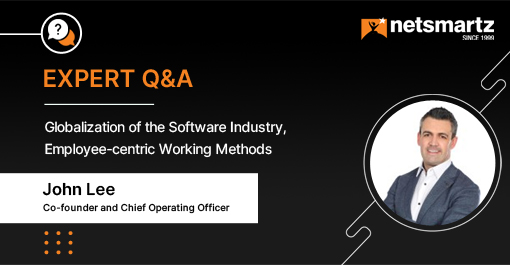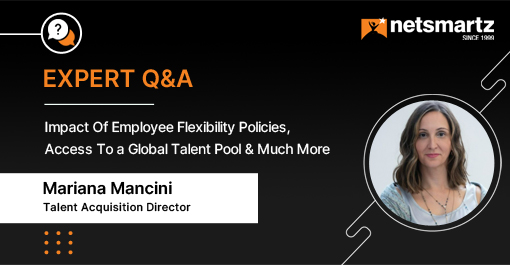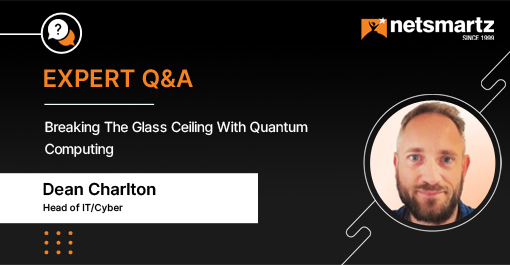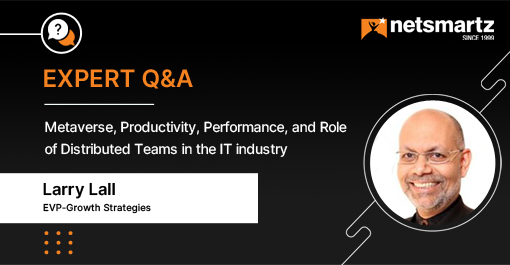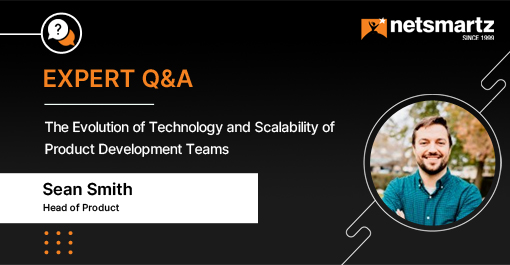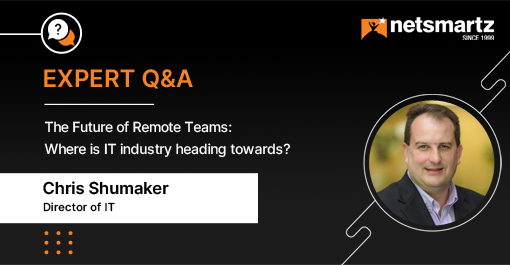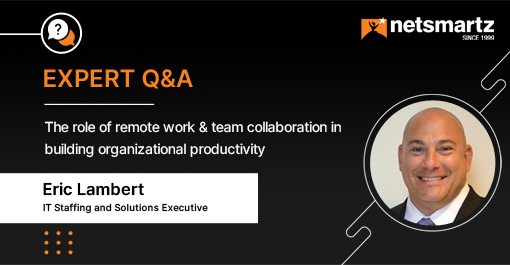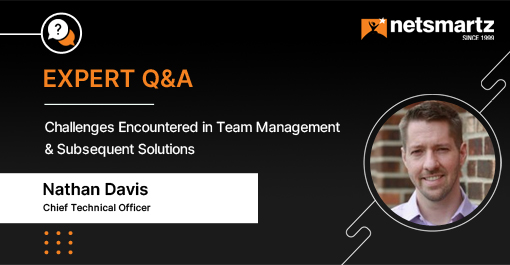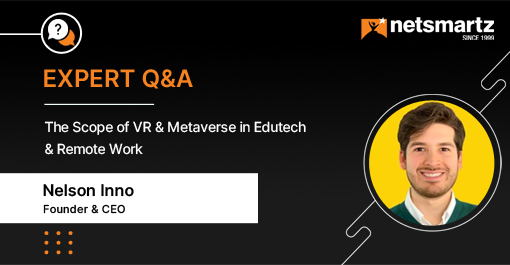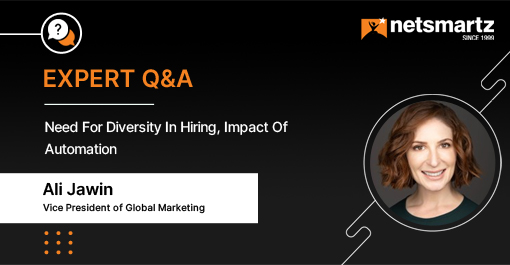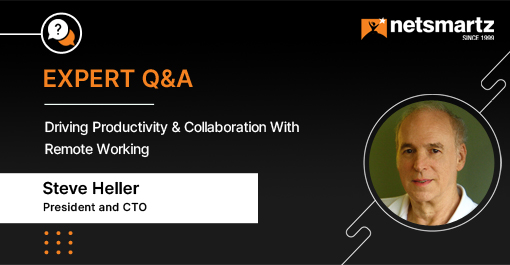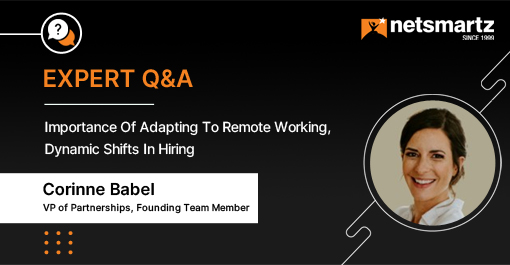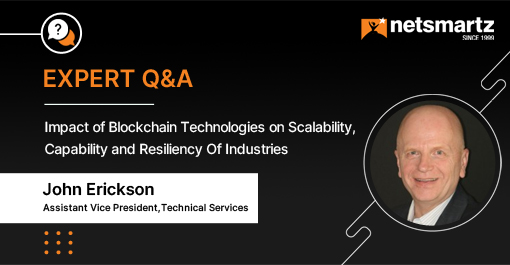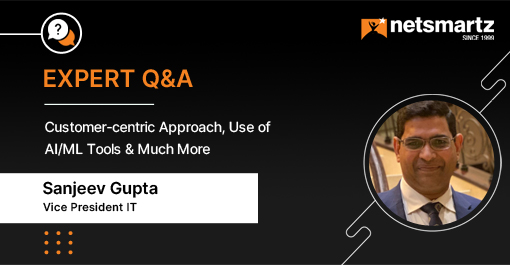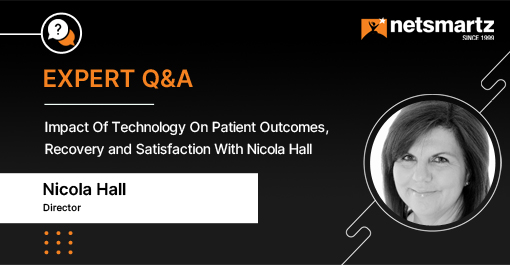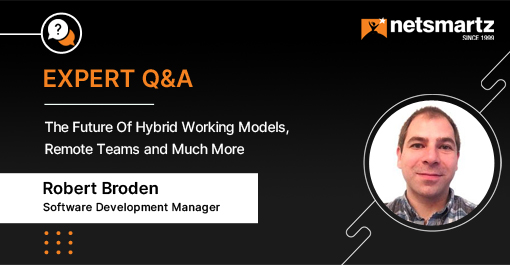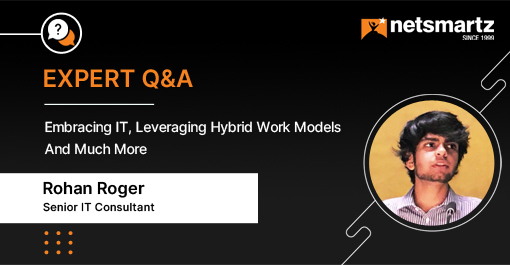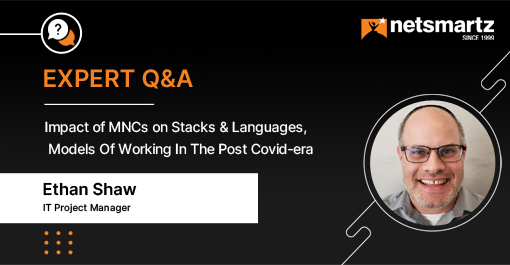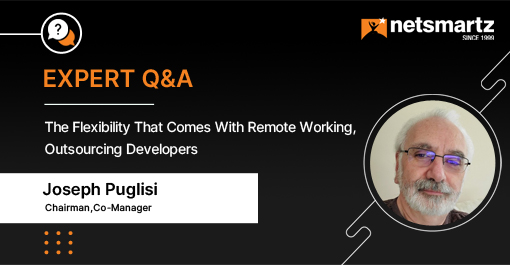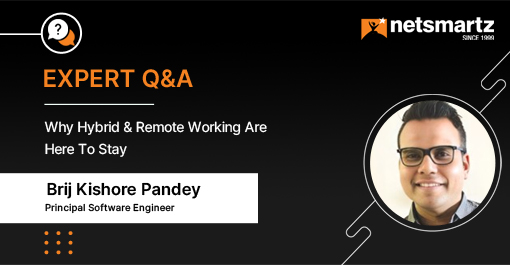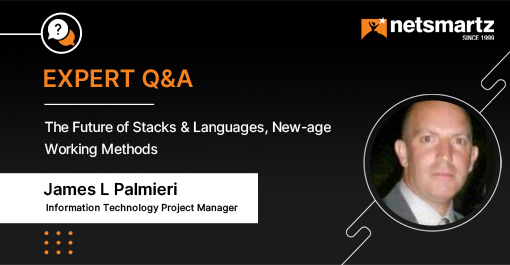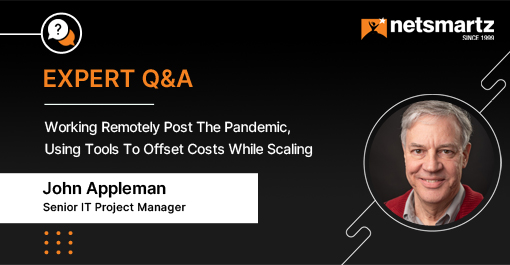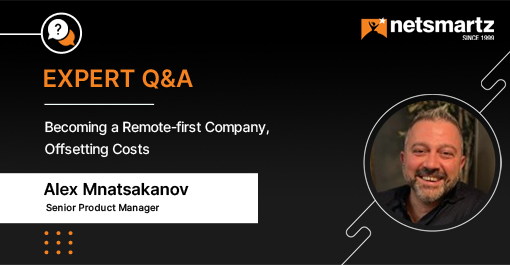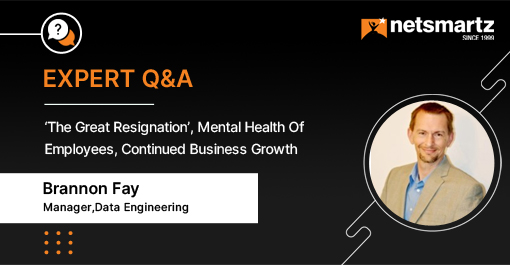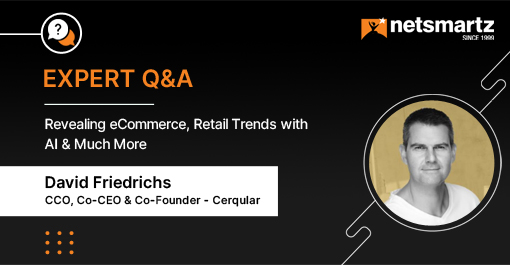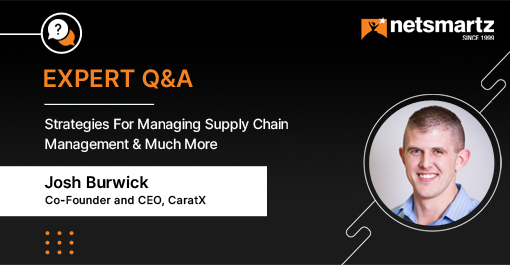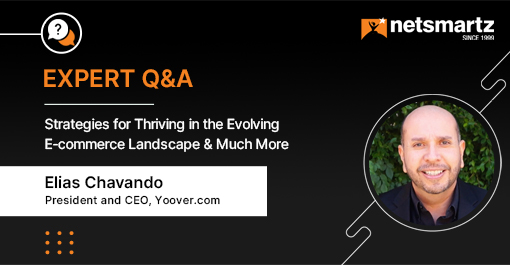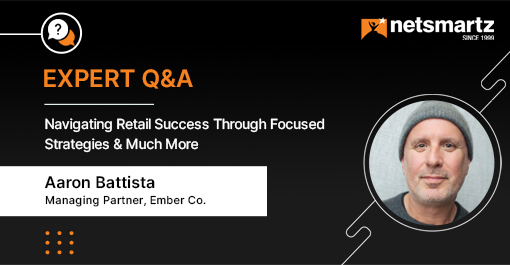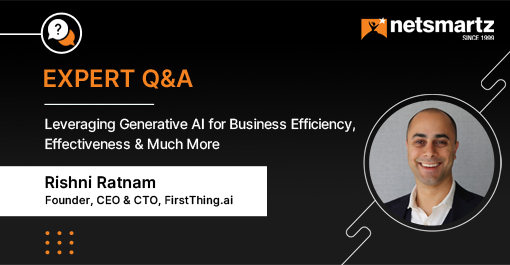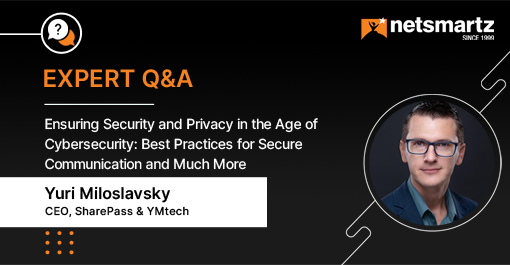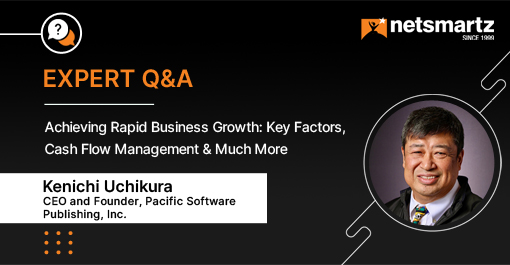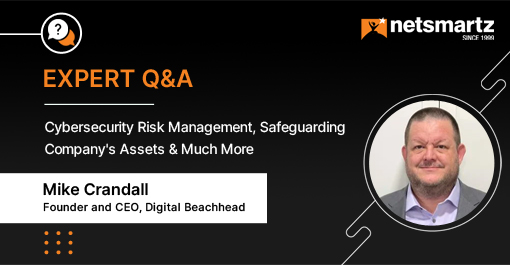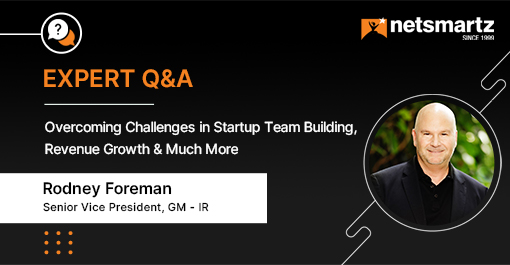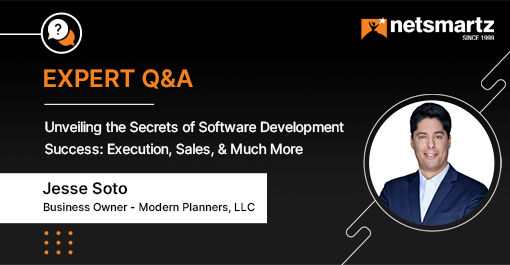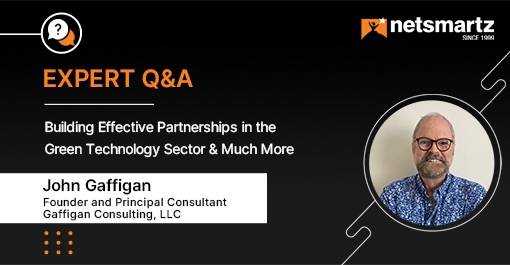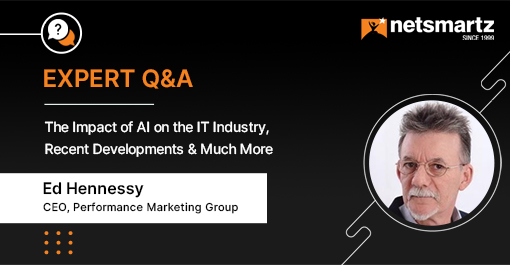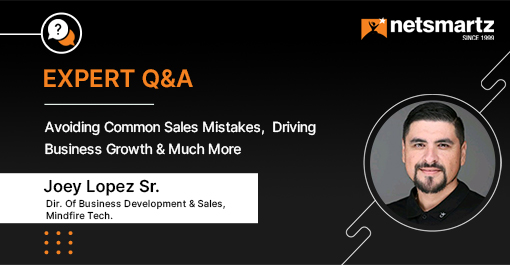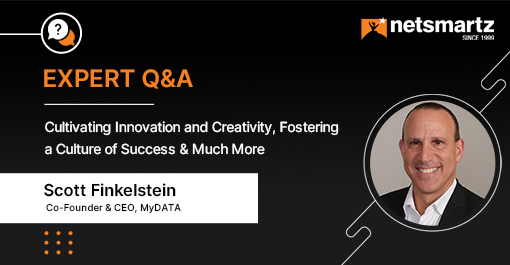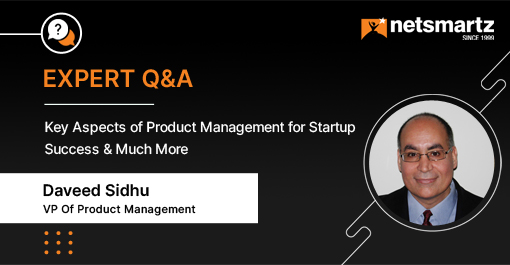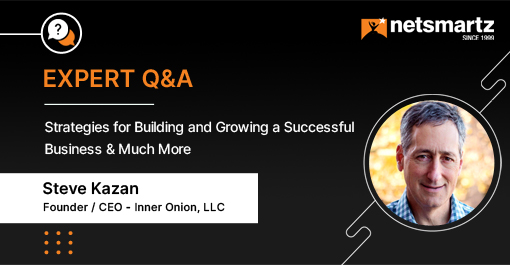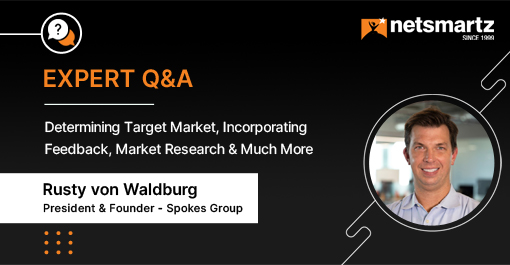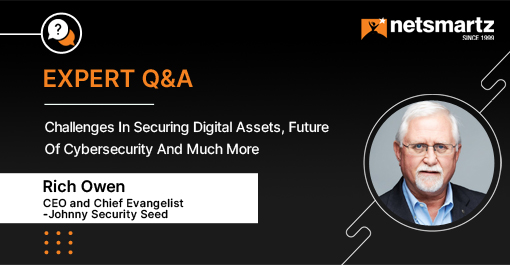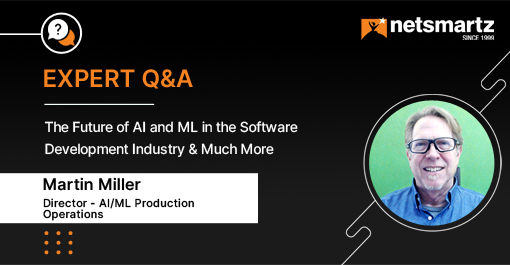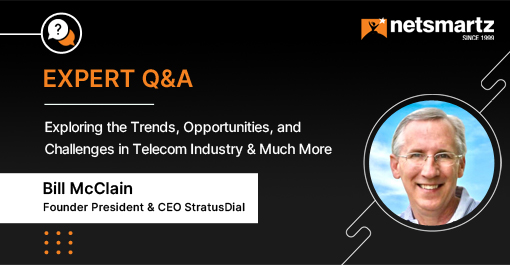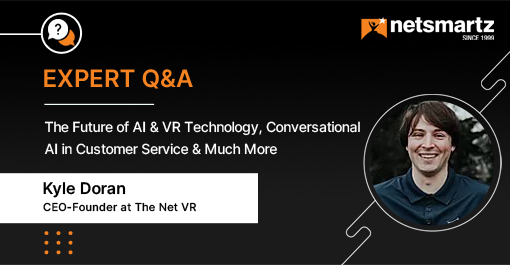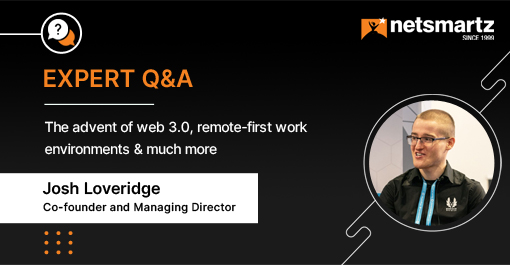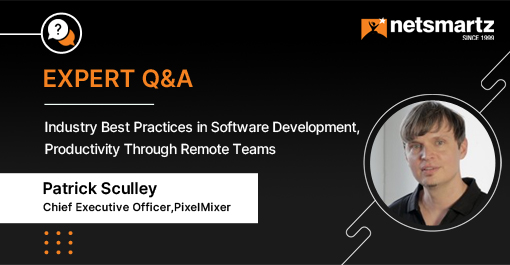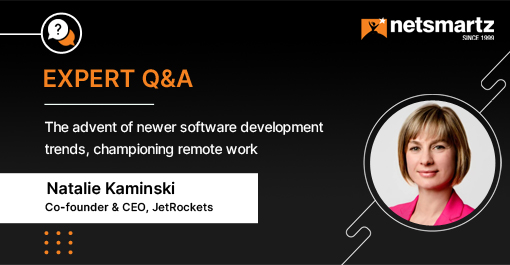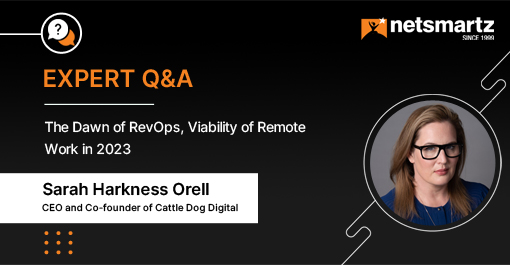The Scope of VR & Metaverse in Edutech & Remote Work
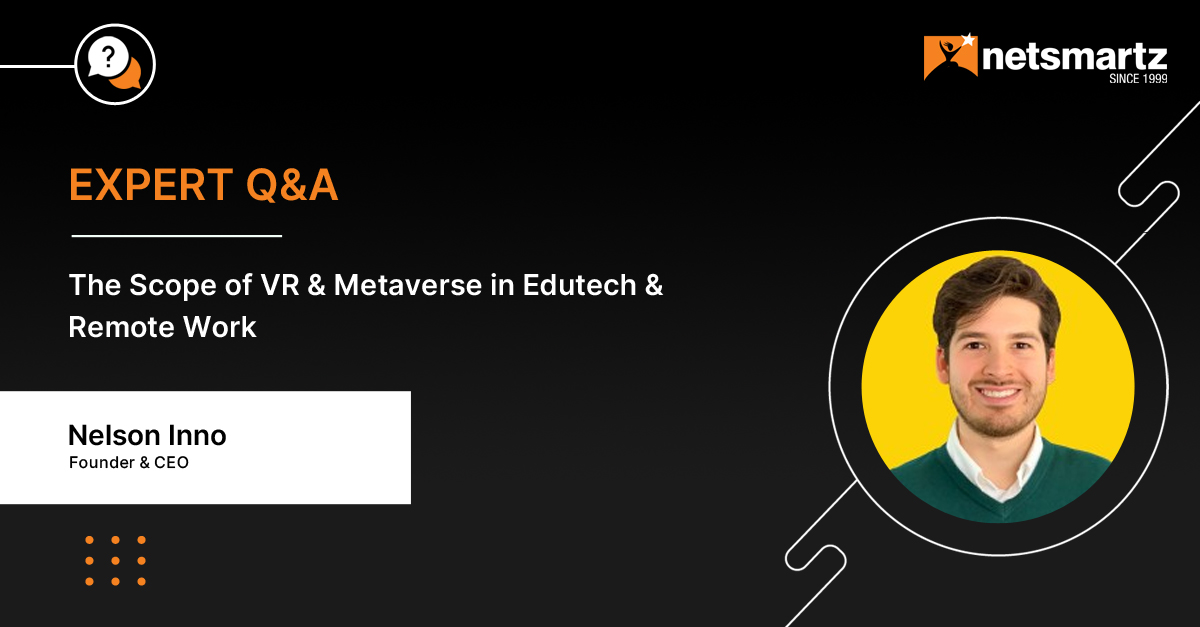
With rapid technological advancements cropping up, it is a matter of debate how the much talked about Metaverse and VR will change the face of remote work and benefit the edutech sector.
Technology and education must go hand in hand, and when leveraged with the latest advancements, it can be a boon for students.
To learn more about it, we sat down with Nelson Inno to hear his take and ideas on the same.
Want to contribute to our expert insights?
 About The Speaker: Nelson Inno
About The Speaker: Nelson Inno
Nelson is a human-centred industrial engineer and a multi-skilled solution inventor. His current fields of interest are World Education, Social Impact, Virtual Reality Innovation, Remote Collaboration, Remote Workshop Facilitation, Processes Engineering, User Experience Design, Usability and Disruptive Trends. He is known for being a critical thinker and a maverick with a special sense for generating success.
Let’s quickly get to our expert’s point of view:
1. As an Innovation Enthusiast & speaker, how do you see the Metaverse evolving regular industries?
Regular industries are not possibly the first ones that are going to experience changes in the Metaverse. If they do, that might be because some of the key players in the industry are going to start doing something. And if they succeed, the other innovative companies in the industry will quickly proceed to enter. What they are going to face there before they start evolving is a big challenge in acquiring the knowledge that they need to enter the Metaverse or web3 world.
Another challenge that they will face once they start evolving, assuming that the Metaverse is going to be more of a 3D world even though it doesn’t have to but I believe that’s the most exciting part. Many industries will have to start preparing their content and everything that they do in a 3D experience. So nowadays you have processes with emails and websites that do all the work but later you will have airdrops of NFTs into the wallets of people.
And you will have more 3D experiences instead of flat websites where people can come and see your manufacturing from the inside and understand why your processes make you the best choice. It will allow them to reduce the gap between the customer and the company that is delivering the product. This goes even for B2B and B2C. You will see companies creating experiences and really getting into what the customers want more than ever before. The ones who don’t won’t succeed as much.
2. What is an exciting project that you’re working on in that regard?
Right now we have been doing a different Metaverse project. We have finished one which we did for a big bank. A little virtual museum with some ideas from the social responsibility program where they teach kids innovation methods with us. The idea is to create a pitch presentation and publish this 3D model and the ideas in our really nice little virtual museum room that later can be migrated to any real Metaverse platform as they start appearing.
It’s a difficult concept because you have to have assumed that in the Metaverse there is like one agreement between the biggest platforms to work with them and follow the same standards. There’s one project with this big bank but the second one is one of the biggest collectors of art in the world. Also, he is a prince and a really important cinema director. They have asked us to start migrating their most important art to a virtual showroom or museum where people can experience and learn more about the art and eventually even own a part of it.
3. Where do you see Technology moving the needle in the education industry?
In the future, you will have a lot of support from AI and the role of teachers will be of motivating and checking when problems occur. Kids will have tablets and smartphones, something called ‘screen real estate.’ The studies will have a system that is going to let kids and adults explore the topics in a more practical, hands-on way. Especially if it’s VR, it’s going to be experience-oriented. You will be learning a lot by doing.
True AI and tracking how people are learning will be able to adapt those experiences so that more theoretical people can learn in a more practical way and vice versa. You can have your teachers assisting and doing platform checks. For example, Charlie was moving on very quickly but now he has stopped for a reason. Maybe I should talk with Charlie and figure out why he is a little bit less motivated about this topic. Or let’s say, Laura, she’s surpassing so fast that she finished the material.
So now the teacher may help Laura pick a topic that is one year later or two years later that she can continue and move on. In the education sector, we will see more technological implementations but at the same time, it’s gonna be way more personalised. I made a Ted Talk, in which I don’t specifically talk about technological innovations in the education industry but more about the principles of what needs to change. I recommend you to check out the Ted Talk.
4. What edutech innovation are you excited about?
There’s an app called brilliant.org, like a little educational platform that lets you learn in a more hands-on way. I happen to be a hands-on person and I’m a little biased with that in all my answers. This platform lets you learn, for example, machine learning. You will have to start solving problems a machine is limited to do so. You really grab the concept behind why this works the way it works. That is something that I truly love. They cover different topics from physics to maths to even chemistry and biology. This is one particular project I’m excited about.
5. What is your own experience in seeing edutech in truly innovative action?
One of the things that I really like is that I have been testing some VR experiences that are about teaching something. As an example, if I’m on a flight and for some reason, anything happens to the pilot, in the movies, they ask if someone has experience flying. I will be willing to take a risk and try to land it, obviously, it will be an assisted process. For example, I have been enjoying understanding flight simulations. When you are trying to learn to fly this machine, you end up learning how much load the pilots have.
You end up opening this big operation manual where you have to go through each button and LED and what they do. When you are learning through VR, there are no real things that can go wrong so to say. But you are truly learning how to operate VR machines and at the same time, I had attended this event a year ago, where they show that in medicine they were teaching some people how to do a knee operation in VR, and when they did they also let other people in some sort of studies learn this operation and they had to simulate this in real life.
And of the people who did it in VR, 89% successfully passed the test and did the knee operation and in comparison to people who learned the theory, only 15% learned it. There’s a lot of potential in these physical processes. When you have good people behind, not only teachers and educationists who design the process of learning but also artists and programmers who can create experiences around it is the most exciting part.
6. We’ve seen tremendous development in the future of work – how do you see it shaping remote work or distributed teams?
There’s this trend we have been seeing since web1 and web2 transitioned and now entering into web3, that is people are trying to have a balance. Almost everyone I know has moved to another country, say Spain, Croatia, or Portugal and then has started working from there. In this digital age, my customers don’t mind where I am in the world as long as I have good internet access and we can speak during working hours, they don’t care if I’m in Portugal or Spain or Ukraine. Where’ve you are, if you can find a place to work from, then we can just be happy with the results and not really care.
7. Has metaverse any major role to play there?
Yes, in the metaverse you can give the impression that people are there in the office. There is a big possibility to have offices where people can let others know I’m available to work with you and now I’m working alone. You can see the faces of people especially if it’s VR related, you can have this feeling of knowing your team. When you go into VR, you work with someone and have a good time, you get the essence of who people are. You don’t have to see people in real life to know who they are and how they think. Through the metaverse, it is even easier to allow the future of work to develop successfully.
 Wrapping Up
Wrapping Up
With his elucidative answers and vivid ideas, Nelson has clearly given us a sneak peek into what is going to come in the future in terms of advancements in the usage of Metaverse and VR. We hope you found this QnA session helpful and full of insights worth noting.
Are You An Influencer?
Make Your Mark as a Thought Leader
We invite industry influencers to participate in our Q&A panel, offering the audience valuable insight into cutting-edge technology trends, platforms, and more.





